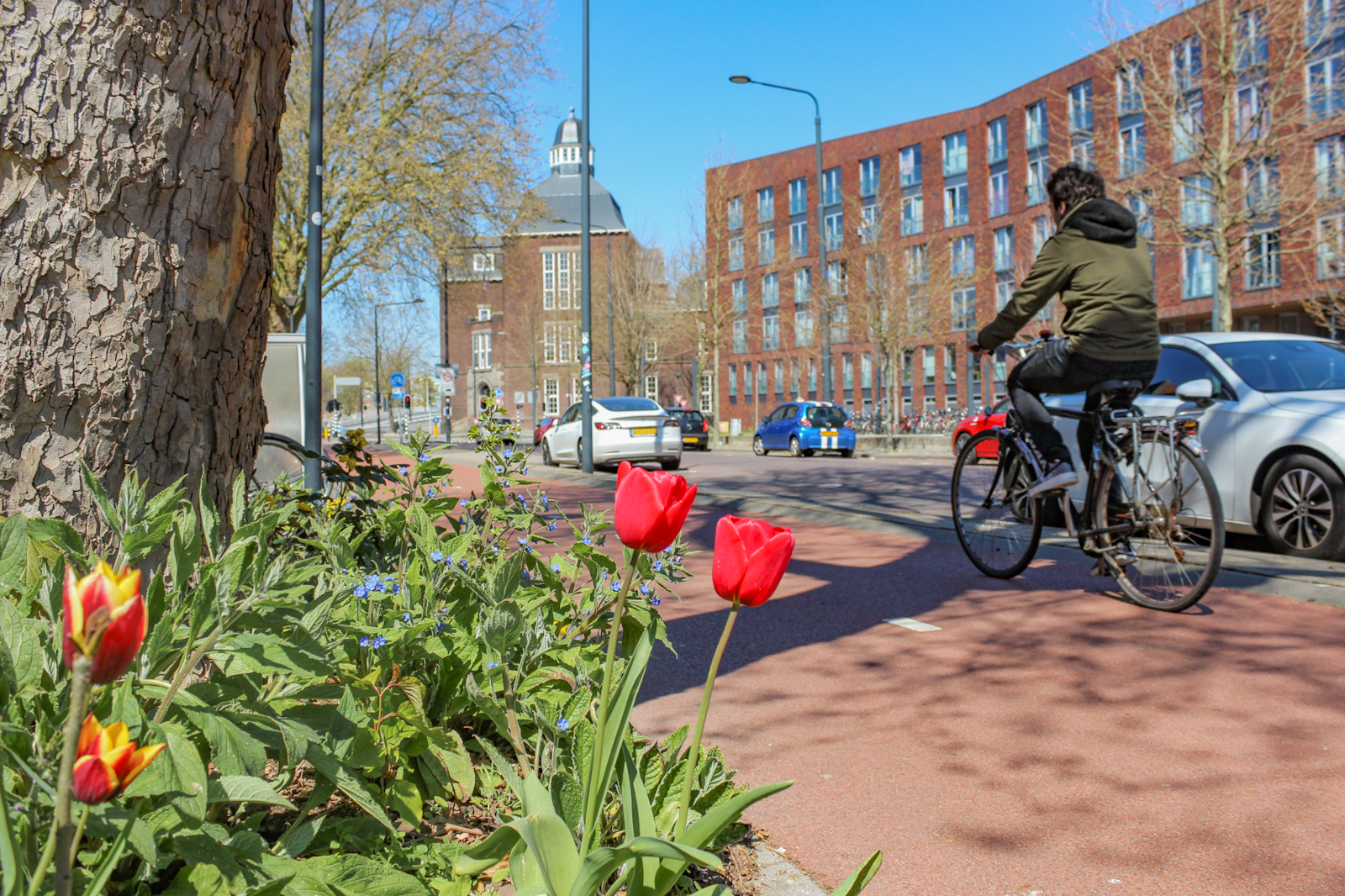In an online petition, over 400 international students are requesting TU Delft to come up with a fairer solution for refunding tuition fees due to Covid-19.
400 international students are requesting TU Delft to come up with a fairer solution for refunding tuition fees due to Covid-19. (Photo: Dalia Madi)
The petition was founded by Ahmet Dönmez after he found out that both European and non-European students would receive the same amount of compensation, despite non-European students paying roughly seven times more tuition fees. “This was really confusing as EU students would receive a compensation of around 50% of their tuition fees, but non-EU students would only receive a 6% compensation of their fees.”
In-person learning
And that’s unfair, says Dönmez, as, due to the corona crisis, no TU Delft students are able to use most of TU Delft’s facilities. “Physical interaction and in-person learning enhances discussion as well as comprehension of new concepts, but all this is missing in the current online education system. And with international students needing to meet credit requirements to keep their residence permits, this puts a lot of extra pressure on them.”
On top of that, non-EU students have to adapt to a new culture and new regulations. “They are learning to live on their own, have to deal with rising living expenses, and are trying to keep up with online lectures. You can imagine that all this makes it hard to focus on their studies. Dutch students on the other hand, have the opportunity to continue living at home instead of renting apartments near campus. They can even save money.”
Postpone studying abroad
When hearing about these issues, one might argue it would have been smarter to postpone studying abroad. Dönmez disagrees. “At the time that international students came to Delft, the Netherlands had fewer corona cases than many countries around the globe. This gave international students the hope to potentially having on-campus education.”
‘It is not fair to charge the same price’
But as the year progressed, the increasing number of infections made on-campus education unfeasible. This resulted in mostly online classes and fewer facilities such as lecture halls, labs and libraries. “Do you think it is fair to charge the same tuition fees when we cannot use these facilities, even if we ourselves chose to come here?”, Dönmez asks. “The EUR 14,000-18,000 fees we paid as non-EU students is the fee for on-campus education that includes all TU Delft facilities. However, as we did not receive on-campus education, it is not fair to charge the same price.”
Cover the costs
Given the current situation, the Dutch Government issued a corona discount for next year’s students. Their initial tuition fees will be reduced by EUR 1,084. For Dutch and European students that means a reduction of 50%, while for non-EU students it is a reduction of 6%.
Dönmez argues that 6% of the initial tuition fees does not cover the difference between on-campus education and remote education. There seems to be little wriggle room though, says Sacha Kroonenberg, Director of Education & Student Affairs.
‘Since our costs have not decreased, we cannot reduce this fee’
“In addition to tuition fees, universities also receive additional funding for teaching to cover the costs of studying. This funding is directly linked to Dutch and European students,” she explains. “In addition, we are expected by law to charge a cost-recovery rate for non-EU students. Since our costs have not decreased, we cannot reduce this fee.”
With no possibility for a bigger refund, Kroonenberg explains that TU Delft is trying to help students in other ways. “Before this academic year, we had a temporary rule for people who graduated late due to the outbreak of the corona pandemic and a considerable number of students used it. This rule has now expired.”
Students who had problems entering the country also received support. “We offered a large part of their education online and they have experienced no or minimal study delay.”
Refund through DUO
Currently, students who graduate also receive a refund through DUO. This arrangement is the same for all students in the Netherlands, and hence also applies to international students. Kroonenberg notes that students and teachers have adapted well to the new situation. “We teach with the intention that students earn a degree, whether on campus or now online because of the crisis. Furthermore, we try to help students who reach out to us as much as we can. This may be a temporary postponement of payment, a payment arrangement, help from the Profiling Fund (RPF) Regulations otherwise. Students can contact their study advisor or TU Delft Education & Student Affairs for help.”
Kroonenberg’s response is not the one Dönmez was hoping for. He was hoping that TU Delft would recognise the issue and change the compensation ratios of tuition fees to at least be comparable to that of Dutch/EU students. “Non-EU students have faced the same struggles in the corona crisis, if not more so. I would have expected greater willingness to find a solution, rather than completely disregarding our request due to ‘cost-recovery rates’.”
Lower House
Parallel to the TU Delft petition, another nationwide request for deductions in tuition fees for international students has been signed 1,525 times. This latter petition will be submitted to the Lower House of Parliament with another petition by Tuition Fee Refunds NOW! (in Dutch) which has been signed over 50,000 times.
Do you have a question or comment about this article?
m.vanderveldt@tudelft.nl


Comments are closed.